8 Easy Ways to Get a Lush Green Lawn Without Using Chemicals

Having lush, green grass not only boosts your home’s curb appeal but also seems to signal something deeper about the homeowner. According to Scientific American, many people view the state of their lawn as tied to their status within their community—equating a well-manicured lawn with high social standing. This means that people tend to go to great lengths to get the lawn of their dreams, often using chemicals even if they’re aware of the ways this can cause harm. However, as more people embrace green gardening practices, organic lawn care has risen in popularity. This is great news for the environment, public health, and lawns themselves. Wondering how to make the switch to a chemical-free lawn? Here are eight easy ways to get a gorgeous plot of grass without using chemicals.
RELATED: The Best Natural Insecticides to Help Save Your Garden.
Why Is Organic Lawn Care Important?

Lawn chemicals, including fertilizers, herbicides, and insecticides, are commonly used in lawn and garden care. These frequently contain nitrogen, phosphorus, and potassium or potash, which can contaminate groundwater and threaten native grasses, flowers, and insect populations.
“When lawn chemicals are applied improperly, they can run off into streams, harming fish and other animals and contaminating our drinking water. Over-application of any lawn chemical can result in runoff that carries toxic levels of chemicals or excessive nutrients into lakes, streams and groundwater,” explains the U.S. Environmental Protection Agency (EPA).
Lawn care chemicals have also been linked to serious health problems, including cancer, immune-response deficiencies, respiratory problems, neurological diseases, skin conditions, and birth defects.
“Lawn chemicals can be absorbed through the skin, swallowed or inhaled. During application, lawn chemicals can drift and settle on ponds, laundry, toys, pools and furniture,” the EPA notes. In fact, the National Pesticide Information Center estimates that roughly 70 million pounds of pesticides spread from their intended target every year, leaving people vulnerable to their effects.
Phil Catron, founder and president of the eco-friendly lawn care company NaturaLawn of America, says it doesn’t have to be this way.
“We know that Americans care deeply about the health and appearance of their lawn. But you don’t have to choose between having a healthy lawn and using harsh chemical pesticides that are unsafe for children and pets, not to mention bad for the environment,” he tells Best Life.
He adds that with organic lawn care, you can still achieve a lush, thick lawn without the risks to your health and the environment.
RELATED: 6 Ways to Pest-Proof Your Grass, According to Landscaping Experts.
Pros and Cons of Natural Lawn Care
Pro: It’s safer for everyone, but especially for children and pets.

Because chemical lawn care has been linked to health problems, switching to an organic lawn can help reduce your risk, says Catron.
“Traditional, chemical-based lawn care products can pose health risks to children, pets, and adults through direct contact or eventual environmental exposure,” he explains. “Organic-based lawn care eliminates these risks by using natural and non-toxic ingredients that ensure a safe environment for families and pets to enjoy outdoor activities.”
“From a human health perspective, organic lawn care reduces exposure to potentially harmful chemicals,” agrees Andy Tait, a plant expert at True Green Nursery. “By minimizing our reliance on these chemicals, we can create safer environments for families, pets, and communities to enjoy outdoor spaces without worrying about toxic residues lingering on grass and soil,” he tells Best Life.
Pro: It promotes healthy, sustainable soil.
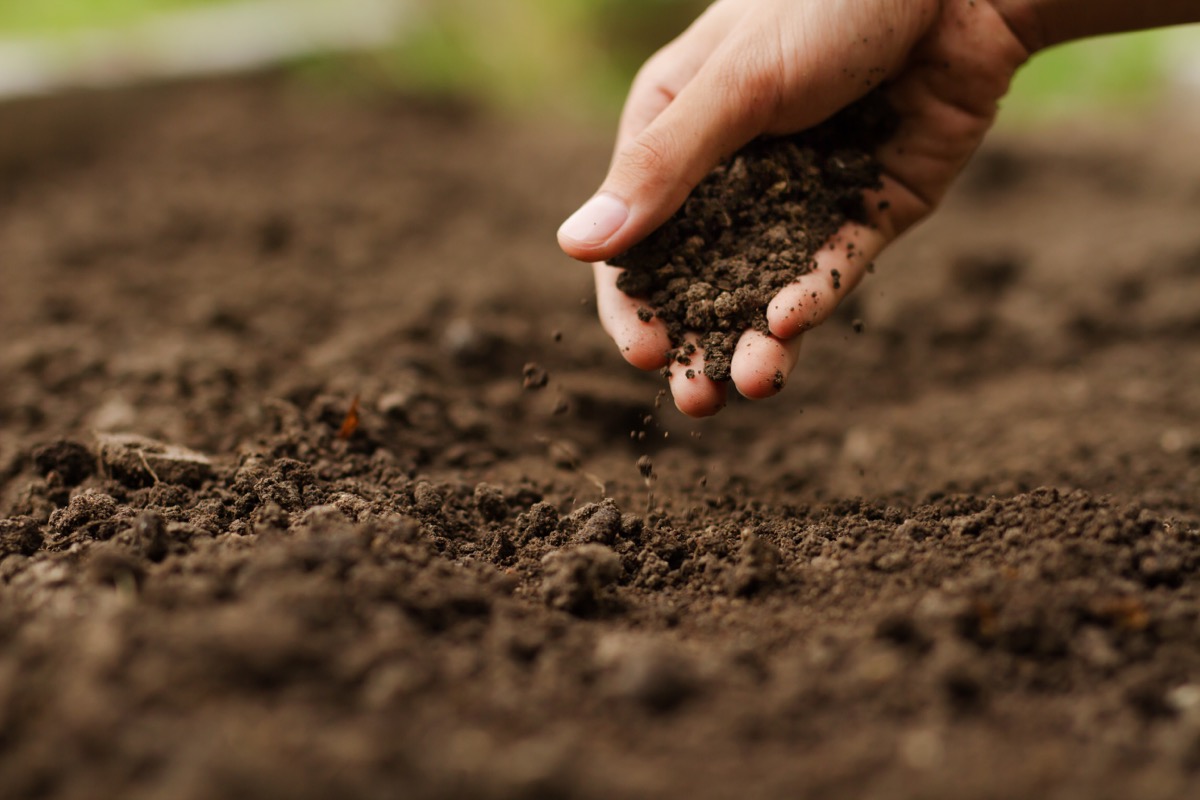
Organic lawns have the added benefit of promoting better soil fertility, improving their ability to sustain plant growth. By switching to organic lawn care practices, you’ll create a sustainable system that yields high-quality grass, plants, and flowers.
“Organic fertilizers are rich in organic matter, which helps to improve soil health. They improve soil structure and promote the growth of beneficial microorganisms that help to break down organic matter, making nutrients more available to the grassroots,” Catron explains.
Pro: It’s better for the environment.
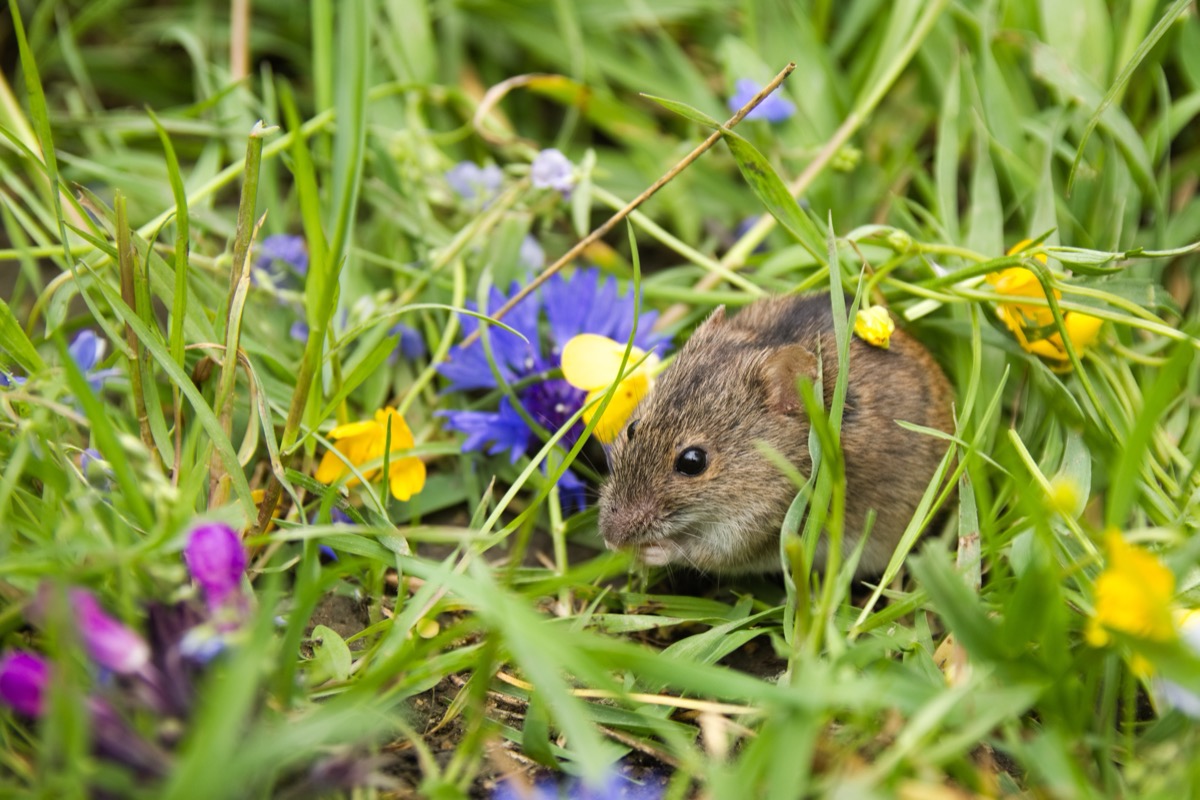
Besides promoting soil health, natural lawn care also reduces pollution and supports biodiversity, the experts say.
“By avoiding synthetic fertilizers and pesticides, a natural approach to lawn care contributes to a healthier ecosystem and helps mitigate the impact of conventional lawn care practices on the environment,” Catron says. “By opting for organic methods, such as composting, natural fertilizers, and integrated pest management, we can minimize these adverse impacts and promote a healthier environment.”
Tait adds that organic lawn care fosters biodiversity by creating habitats for beneficial insects, birds, and other wildlife.
“Chemical pesticides not only kill harmful pests but also indiscriminately eliminate beneficial insects like bees and ladybugs, disrupting the natural balance and potentially leading to pest resurgence. Embracing organic practices encourages a more holistic approach to landscaping that supports a rich array of flora and fauna, contributing to overall ecosystem resilience,” he says.
Con: It can take time to see results.
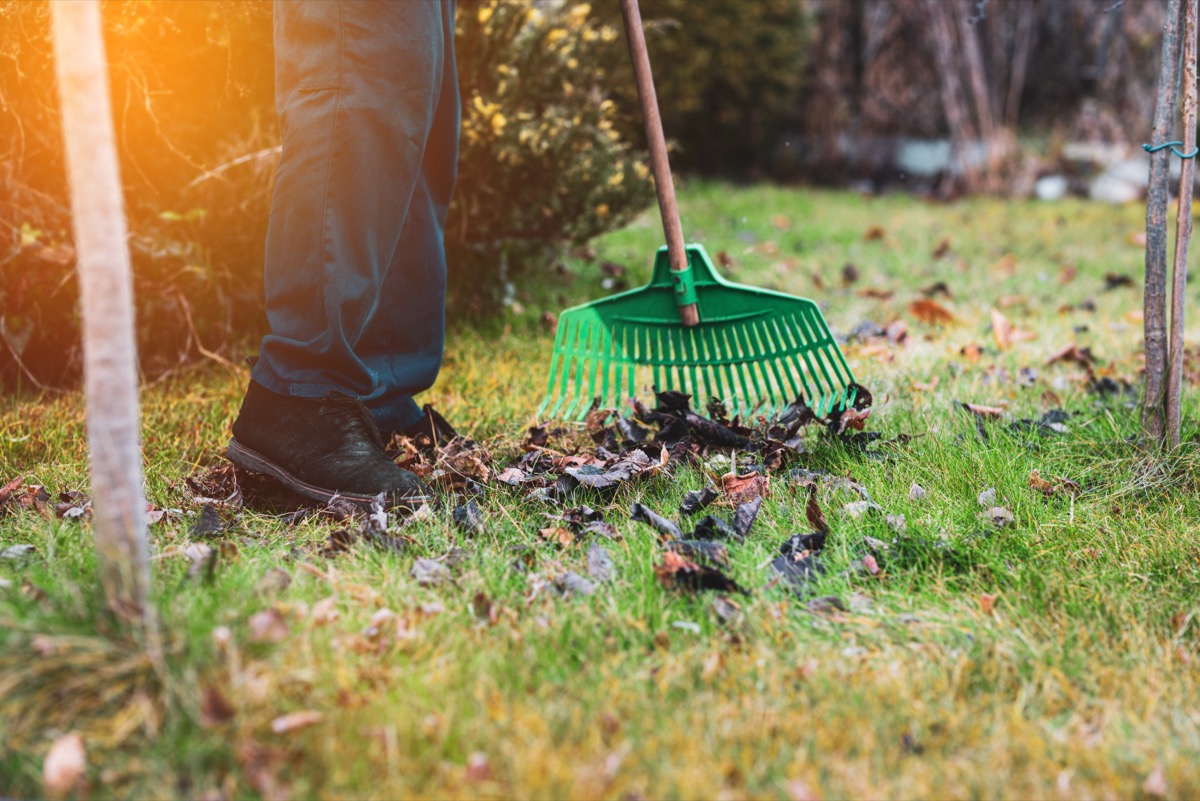
One downside of switching to organic lawn care is that you may experience a rocky period of transition.
“Natural lawn care can require some time to see results, as it involves gradual soil improvement,” explains Catron. “Homeowners may need to invest time in education or seek professional guidance for best outcomes and to build a strong lawn foundation.”
Jane Dobbs, leader of the gardening team at Allan’s Gardeners in London, adds that during this initial adjustment period, you’re likely to notice temporary fluctuations in appearance.
“When switching from conventional to natural lawn care, the lawn may have to adapt to new products and practices. Additionally, organic fertilizers and natural pest control methods can take longer to see results than synthetic chemicals. You need to be committed to regular lawn care and proactive pest control, plus you need to know the basics of organic gardening,” she tells Best Life.
Con: It can be pricey to make the switch.

It’s no secret that organic lawn care products are more expensive than their chemical counterparts—at least up front. However, the experts say that by creating a more sustainable system, you should be able to curb costs in the long run.
“While organic-based, natural lawn care treatments may be priced slightly higher than conventional options, the benefits far outweigh the costs. Investing in these services ensures long-term benefits for your yard, the environment, and your families,” says Catron.
Con: Your lawn may not achieve a flawless finish.
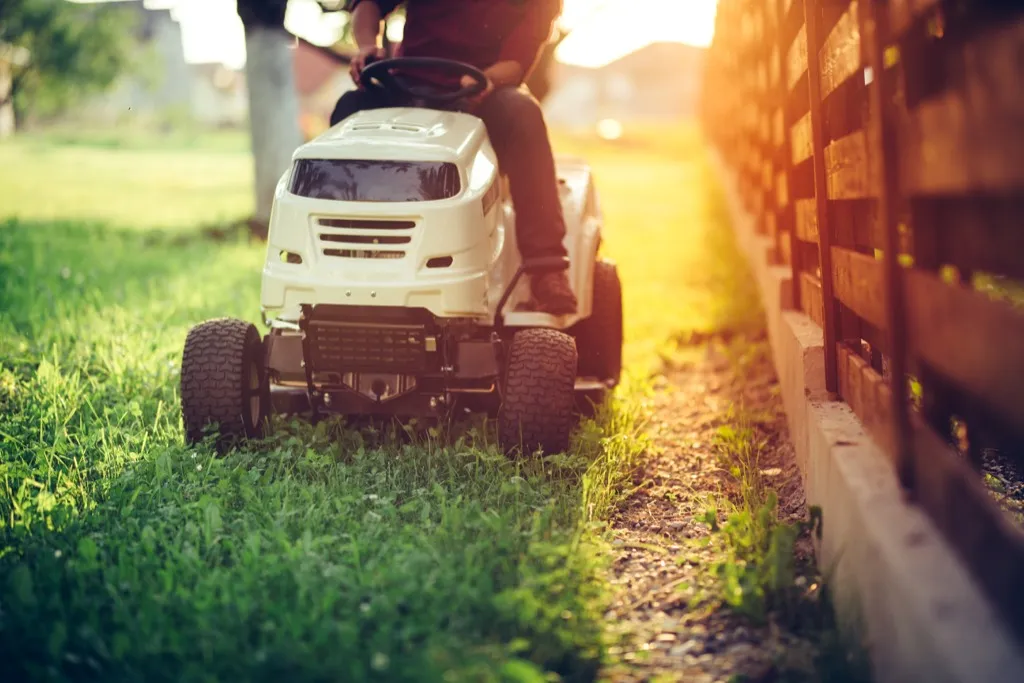
It’s also important to be realistic about the finished results. “Organic lawns might not be perfect showpieces,” says Evan Torchio, founder and CEO of Tree Menders. However, even if your organic lawn is less manicured than your existing lawn, the gains outweigh the losses, the experts agree.
“Accept that a flawless, weed-free lawn year-round is unrealistic and often unsustainable. Lawns, like any living organism, undergo seasonal cycles and occasional blemishes. Focus on nurturing a healthy, resilient lawn rather than pursuing unattainable perfection,” recommends Catron.
RELATED: 7 Easy Flowers for Your Garden That Don’t Need Sunlight.
How to Transition to Organic Lawn Care
1. Understand soil health.
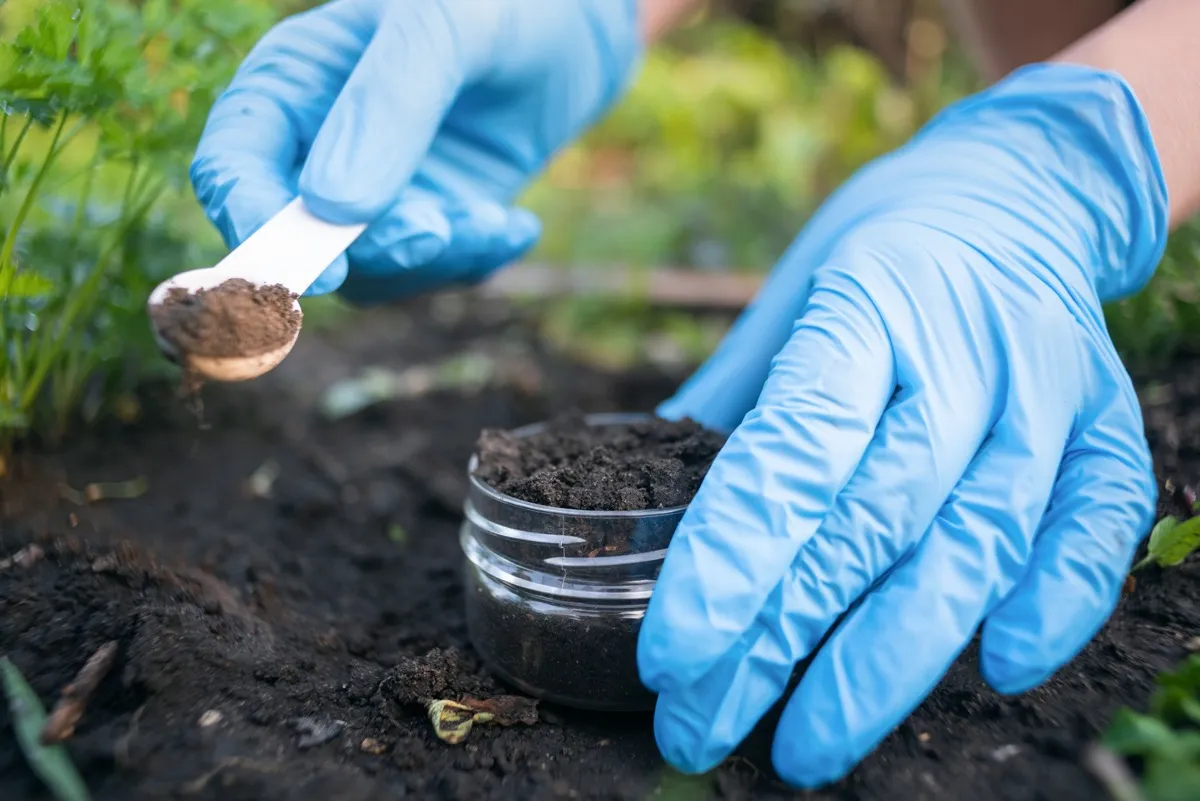
Your first step is to take inventory of your lawn’s current state of health. By testing your soil every one to three years, you can find out which micronutrients and macronutrients your soil needs to see tangible improvements in quality and pH.
“First, understand that the health of the soil is the foundation from which a lawn either thrives or languishes,” Catron says. “By taking a soil test and having either a state university or independent lab run an analysis, you will discover what nutrients are needed, those that are not needed, and what amendments like lime or Sulphur may be necessary to adjust the soil’s acidity level to best compliment the grass type being grown.”
2. Make a water management plan.
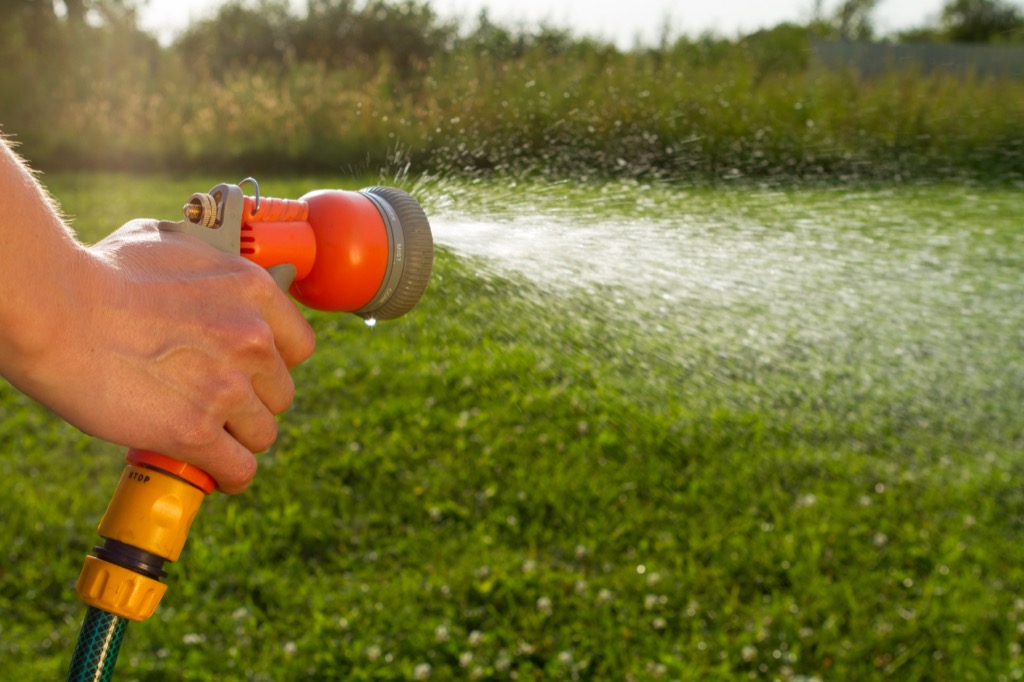
Next, you’ll want to make a water management plan, especially if you live in a drought-prone area, explains Dobbs: “With water-saving techniques like mulching, irrigation scheduling, and drought-resistant grass varieties, homeowners can save water without compromising lawn health.”
Torchio adds that building a routine of deep, infrequent watering is another key to making a successful switch. “Frequent shallow watering creates weak, shallow roots. Deep watering encourages your grass to dig down for moisture, making it more drought-tolerant,” he tells Best Life.
3. Choose organic fertilizer.
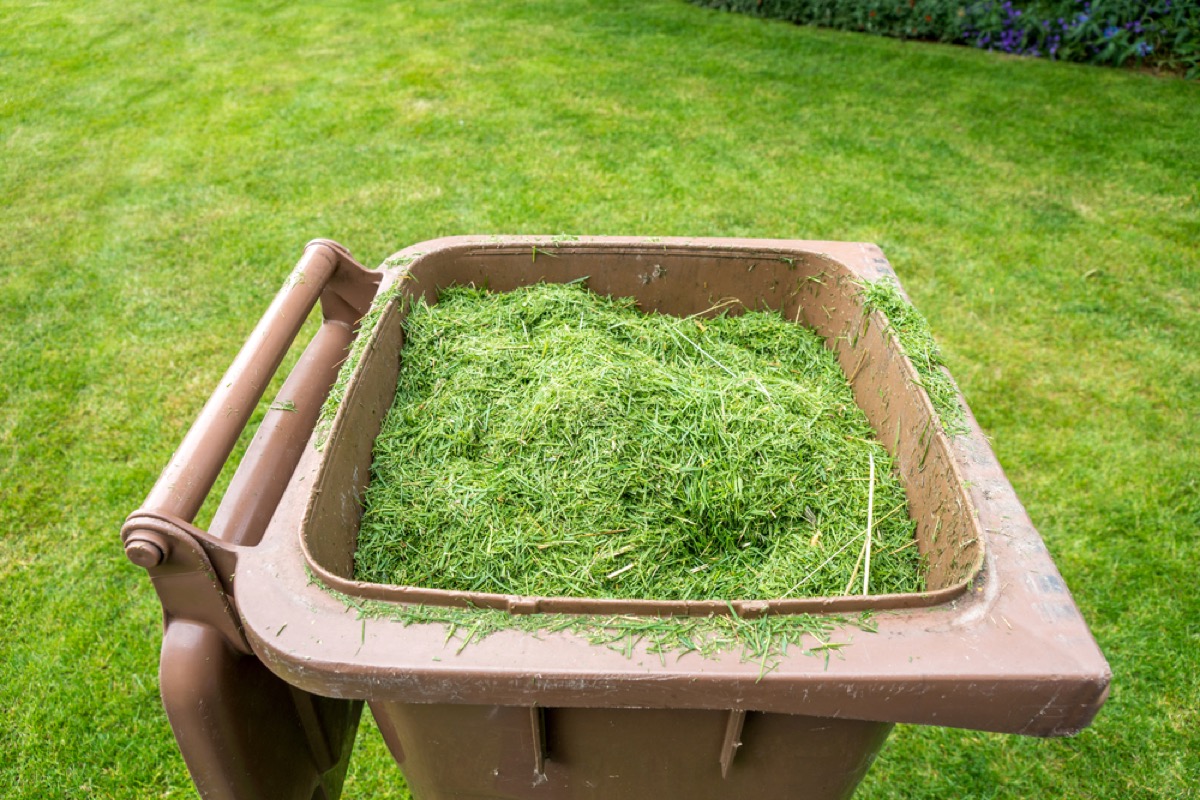
Finding the right organic fertilizer will also help wean you from products that use harsh chemicals.
“Organic fertilizers are slow release and your best choice for feeding the lawn throughout the growing season. Synthetic fast-release fertilizers can leach into groundwater supplies, cause excessive leaf growth in the turf, and stunt the all-important grass root system,” says Catron.
For instance, some experts recommend corn gluten meal (CGM) as a fertilizer and natural herbicide. “Besides its high protein content, CGM also contains 10 percent nitrogen by volume, making it an excellent, natural, slow-release fertilizer for lawns. It promotes thicker lawns resulting in fewer places for weeds to become established,” writes Linda Naeve, a horticulture expert from Iowa State University.
Similarly, returning grass clippings to your lawn to decompose is another method of organic fertilization. “Grass clippings returned to the lawn provide up to 25 percent of your lawn’s total fertilizer needs,” writes Chris Starbuck, part of the department of horticulture at the University of Missouri.
4. Practice proper mowing.

How you mow your lawn can also impact your transition to organic lawn care. In fact, Catron says that implementing proper mowing practices can help you naturally reduce weed populations.
“Keeping your mower blade sharp and adjusting the cutting height to suit your grass species can eliminate up to 85 percent of weeds without the need for chemical herbicides,” he says.
The EPA recommends mowing “high, often, and with sharp blades” for optimal results.
RELATED: 18 Mistakes That Are Destroying Your Garden.
5. Choose the right types of grass.
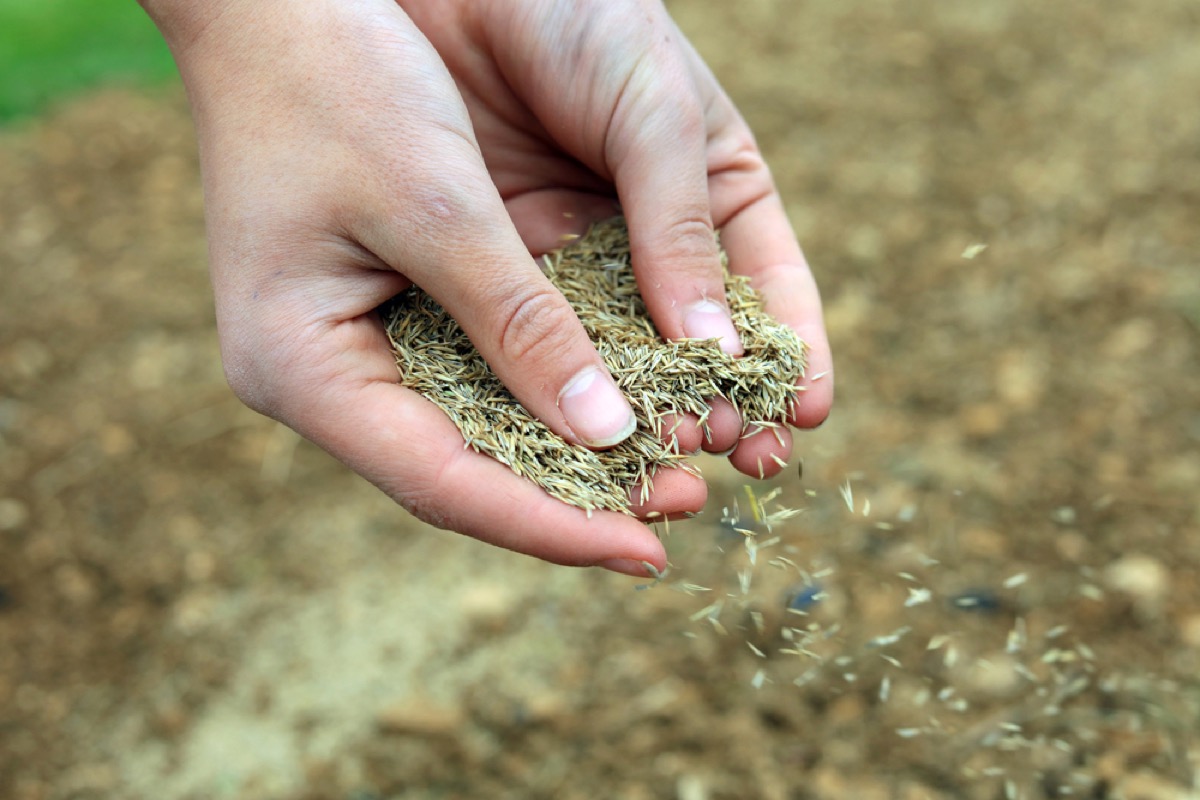
According to the EPA, another way to help grow your lawn organically is to plant grass seed that’s native to your area.
“The right type of grass—one that suits your needs and likes the local weather—will always give better results,” their experts write. “Why struggle to grow grass that’s susceptible to fungal infection if you live in a humid climate? Or a water-loving species if you live in an area with water shortages? Grass that is well adapted to your area will grow better and resist local pests and diseases better,” they add.
6. Promote endophytes.
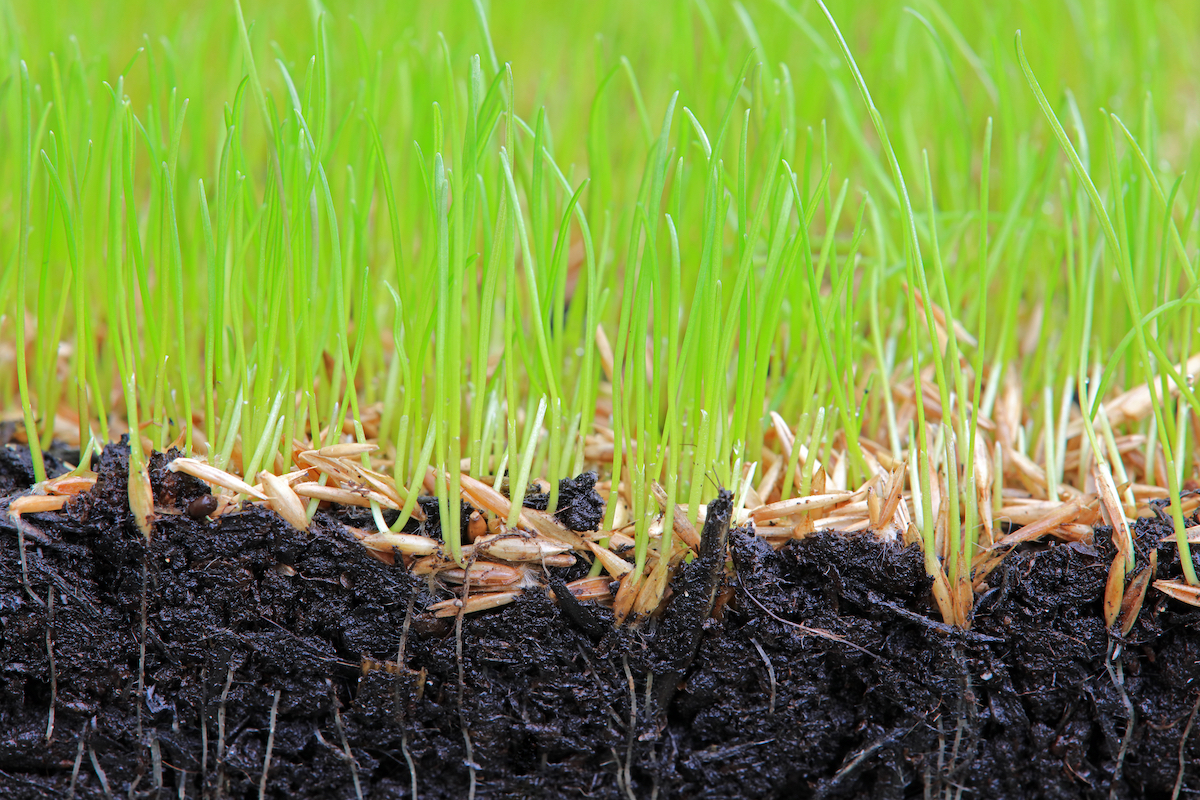
There’s another way that you can get a lush, green lawn without using chemicals, Catron suggests: “Consider aerating and over-seeding your lawn with a high-quality seed blend containing endophytes, naturally occurring organisms that repel insects by making the grass unpalatable or inhibiting their reproduction.”
According to a 2016 study in the journal Frontiers in Microbiology, endophytes are groups of microorganisms that colonize plants and, in the process, enhance their growth and nutrient gain.
“They may improve the plant’s ability to tolerate various types of abiotic and biotic stresses, and enhance the resistance of plants to insects and pests,” the researchers note.
7. Phase chemicals out.
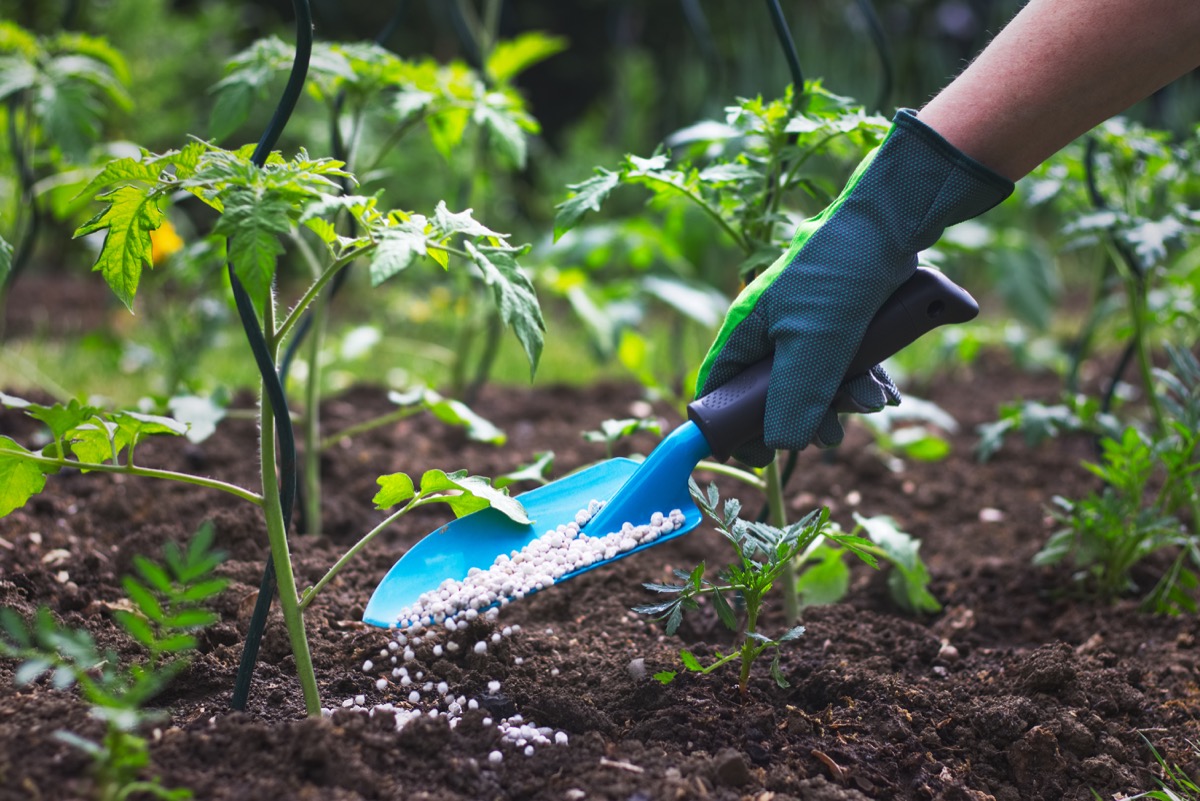
If you decide to go organic, you don’t necessarily have to quit chemicals cold turkey. You can begin by eliminating the most harmful inputs first and phasing the rest out over time.
“First, ditch the chemical fertilizers and weed killers,” Torchio suggests. “These may give quick results, but they harm the good stuff living in your soil. Instead, focus on feeding the soil with compost and organic fertilizers like pelletized fish and seaweed. Think of it like feeding the earthworms—they’ll munch on the compost and aerate your soil naturally, creating a crumbly haven for your grassroots.”
Catron adds that you should universally avoid using any “weed and feed” products, which combine chemical fertilizers and weed killers into a single product.
“Many of these types of products contain an herbicide called 2,4-D which has been associated with non-Hodgkin’s lymphoma,” a form of cancer, he warns. According to the Centers for Disease Control and Prevention (CDC), it has also been linked to respiratory illness, nervous system dysfunction, low birth weights, and more.
8. Control insects and diseases naturally.
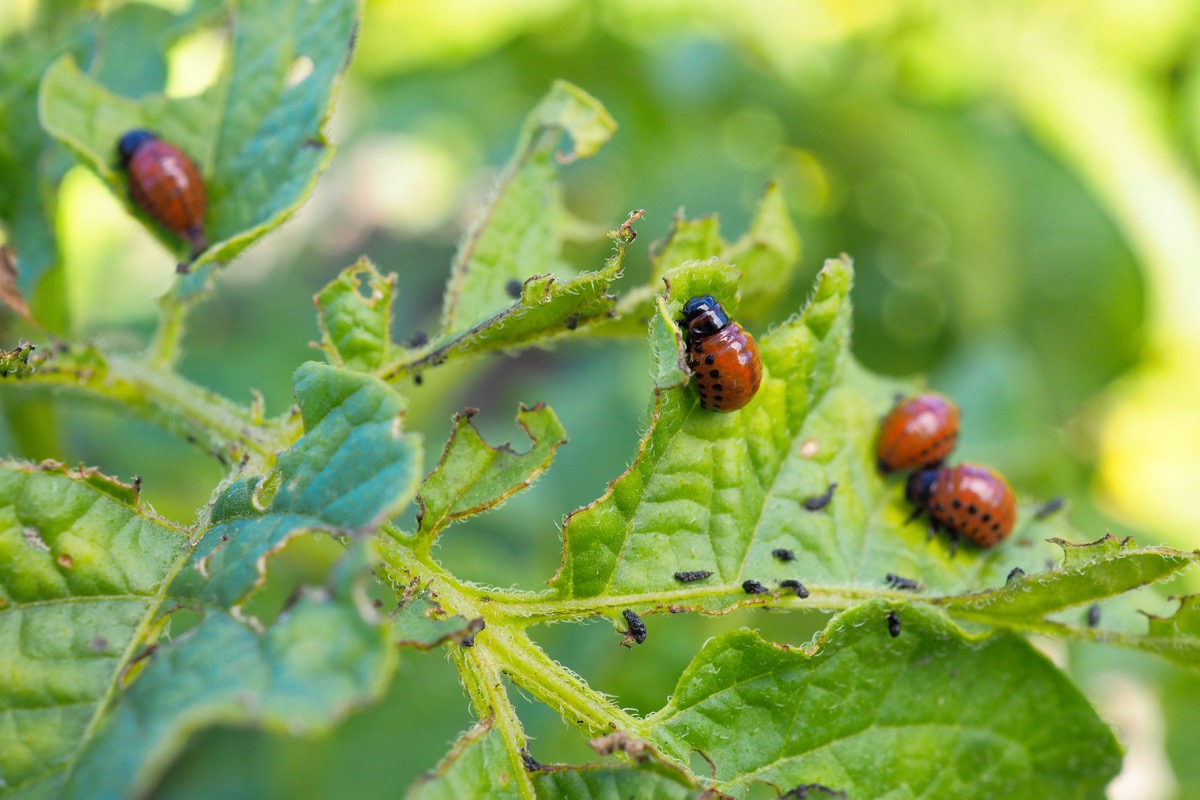
Finally, Catron recommends combating insect damage and diseases through biological or biorational controls rather than synthetic pesticides. In other words, you can introduce natural insect predators or pathogens into your lawn’s ecosystem to curb insects without the use of chemicals.
“Biological controls like Milky Spore, Nematodes, and BT attack damaging turf insects, while biorational controls like NEEM and pyrethrum deter feeding or disrupt insect maturation without harming beneficial insects,” he notes.
Dobbs agrees that organic insect control methods can be an effective strategy. “Organic lawn care is all about prevention, not eradication, when it comes to controlling pests and diseases. Natural pest control methods, like introducing beneficial insects, using companion planting techniques, and using organic repellents, help keep ecosystems balanced and reduce the use of harmful chemicals,” she says.